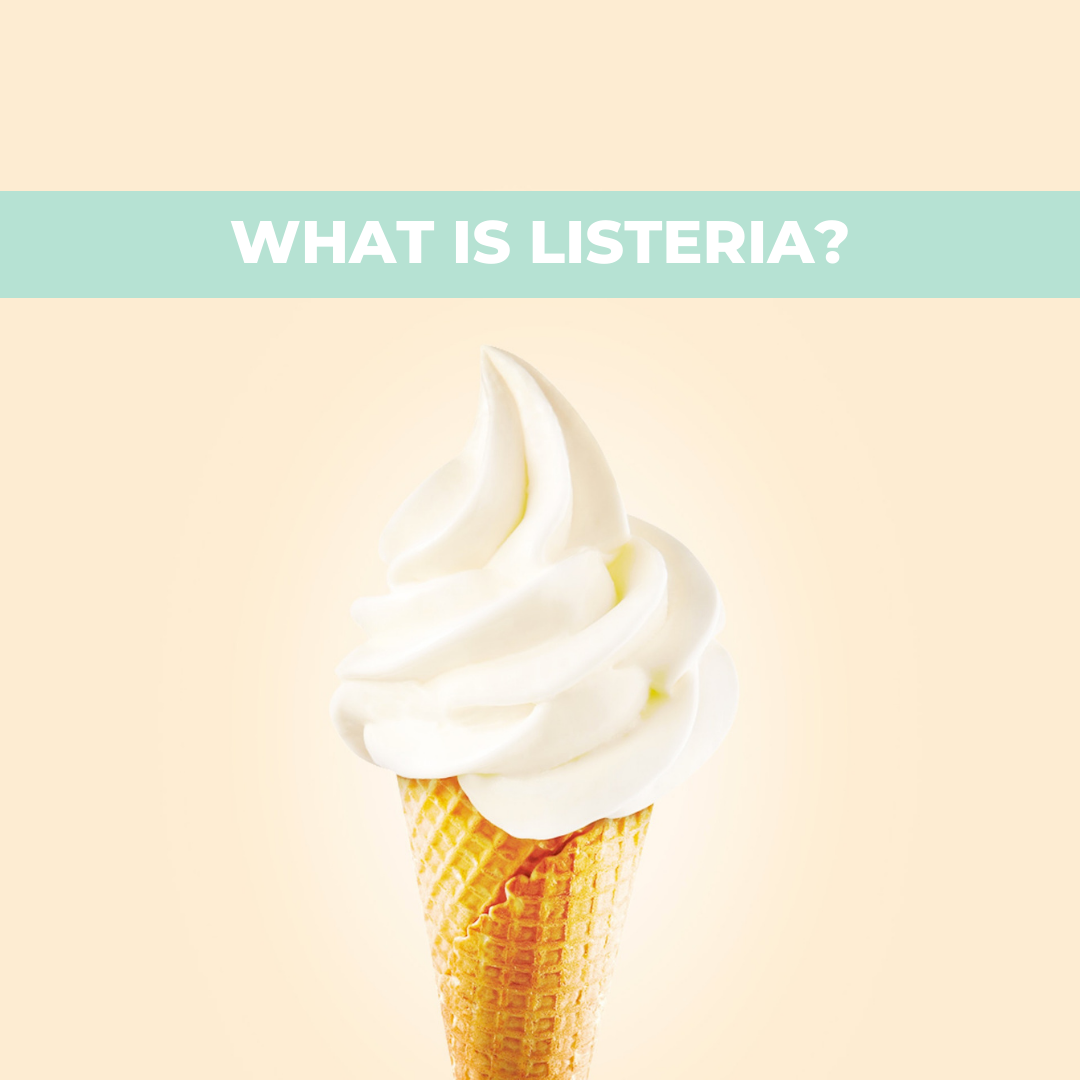
So, what is Listeria anyway?
Accredited Practicing Dietician Natasha Lane gives us the rundown on the do's and don'ts when it comes to what's safe to eat during pregnancy.
Nutrition in pregnancy is a minefield, there is so much information. Most pregnant women are advised by their medical care team whether they need to supplement specific nutrients, which takes care of the important stuff like folate, iron, iodine and vitamin D.
Women are also advised to protect themselves and their growing foetus from Listeria. Typically, women are told to avoid foods like pate, deli meat; ham, salami and the like, cold cooked chicken, pre-prepared salads; supermarket or deli coleslaws, potato and fruit salads for example. They are also told to skip the raw and smoked seafood including pre-cooked prawns. Unpasteurised dairy products are a no go, as well as soft cheeses (brie, camembert, ricotta, feta, blue cheese), raw or under cooked eggs and soft serve ice cream. Feels pretty restrictive right? That’s because it is. And for good reason.

However, there is vital bit of information that often gets overlooked when educating women and their families about Listeria. Listeria is killed at high temperatures, which means that if you are missing your usual ham and cheese sandwich, throw it in the sandwich press until its piping hot and enjoy! Swap out soft poached eggs for scrambled or fried cooked all the way through.
Brie and prosciutto pizza anyone? Spinach and ricotta parcels? all acceptable, as long they have been heated to above 74oC. Same goes for leftovers, you can eat them, as long as you do so within 24 hours and, just be sure to heat thoroughly all the way through. The heated or re-heated food needs to be above 74oC for at least two minutes to kill the bacteria, so keep that in mind.
You can eat freshly cooked and canned seafood but if you are a sea food lover, it is important to understand the restrictions around seafood and the different species of fish. Chat with your nutrition professional.
You’re probably not wanting to eat hot coleslaw or fruit salad that you bought from the deli, it’s best to make these dishes fresh. On that note, a lot of people I speak to skip the ‘washing’ step in fruit and vegetable preparation. Pregnant or not, thoroughly washing food is essential to reduce the risk bacterial contamination that can lead to serious illness, it also removes dirt, pesticide residue and little insects. If you are still not convinced, I encourage you to consider the food production chain of events that occur before the fresh produce gets to your fridge. There are lots of opportunities for contamination between the farm and the supermarket. It’s a bit like washing your hands after you go to the toilet.
It only takes 5 - 10 minutes, soft fresh produce like berries can be rinsed under cool running water. Firm fruit and vegetables can be soaked for 5 – 10 minutes in a clean sink of cold water, use a vegetable brush or your hands to rub off visible dirt and then rinse under cold running water.

As for soft serve, it will have to wait until you are post-partum; stick with commercially prepared ice-cream for now. Same goes for mayonnaise, mousse and other dishes that contain raw eggs. Store bought versions of these products are acceptable but it is important to follow storage directions.
There are many precautions that need to be considered during pregnancy, and all for the purpose of keeping you and your baby as safe as possible. A diet that incorporates a wide variety of foods will help to provide you both with all of the different vitamins and minerals that are required throughout pregnancy.
Sometimes shopping, cooking and eating are challenging, and that’s understandable. Be kind to yourself, it’s OK to have cereal or baked beans on toast for dinner. If you are really struggling to eat enough, keep food down, or you have special needs, seek nutrition advice from a qualified professional.
Want further advice from a professional? Meet Natasha from All Over Nutrition in Melbourne....
Natasha is an Accredited Practising Dietitian (APD), that loves cooking and eating. She educates and counsels clients to feel empowered and confident to make food and lifestyle choices that fit with their health goals.

Natasha has developed a special interest in sensory processing and how it contributes to food aversion and restriction, especially in the neurodiverse. She has recently completed Sensory Oral Sequential (SOS) feeding therapy training for children that have sensory processing problems relating to food and eating.
Natasha can provide support to clients that are looking for guidance on healthy eating including fussy eaters. She can also assist with dietary management of food allergies, intolerances, chronic diseases like coeliac disease, diabetes and heart disease, as well as gastrointestinal problems like Inflammatory Bowel Disease (IBD) and Irritable Bowel Syndrome (IBS). Natasha has also completed the Monash University FODMAP Training course for the management of IBS.


